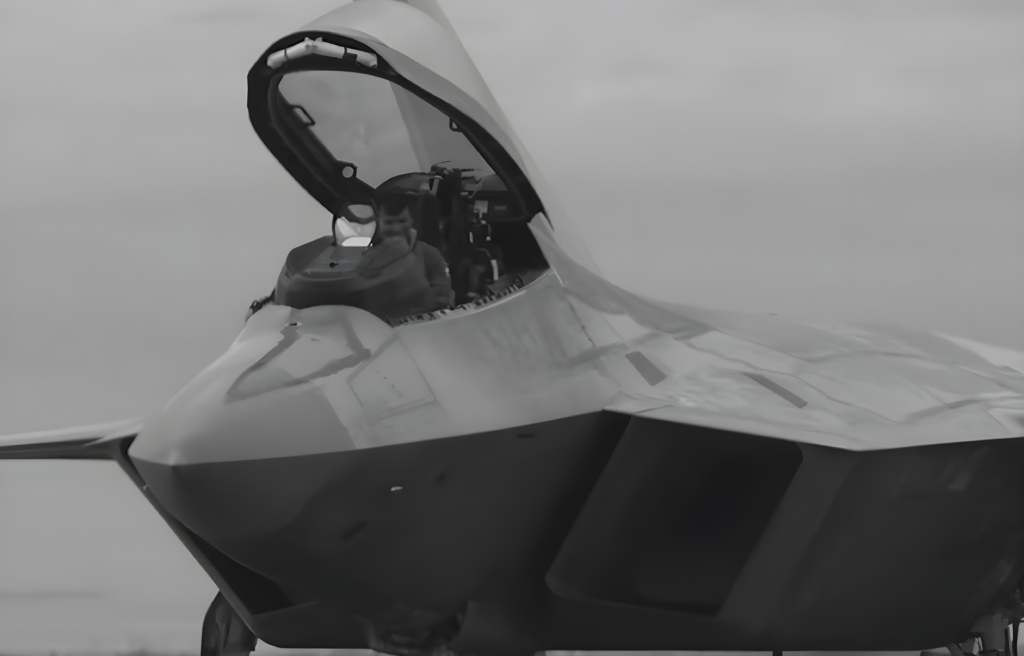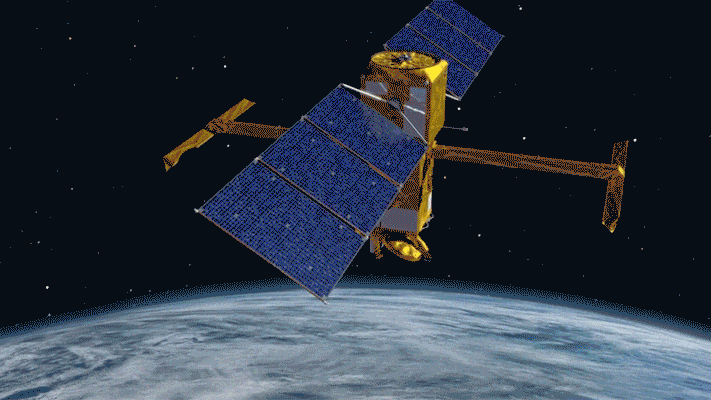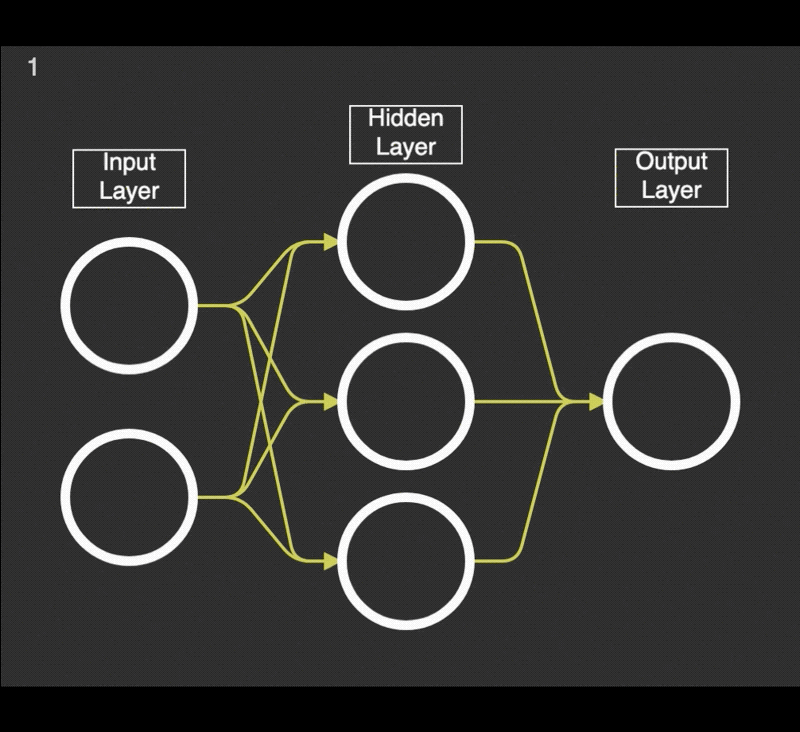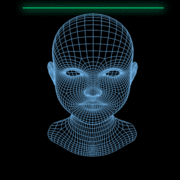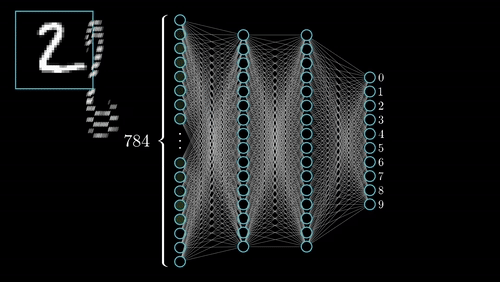Is AI filling in for pilots?

Roadmap – NITI Aayog and the Ministry of Defence partnered to build a roadmap for integrating AI within the defence forces in 2018.
Defence Artificial Intelligence Council – It is led by Ministry of Defence to provide overall guidance and support for projects involving cutting-edge technologies.
Defence AI Project Agency – As per Chandrasekaran committee recommendation it was launched with an annual budget of 100 crores for AI programs to provide necessary guidance and structural support.
Defence India Startup Challenge – It is under the Innovations for Defence Excellence (iDEX) programme which aims to fund startups that address AI, sophisticated imaging, sensor systems, big data analytics, autonomous unmanned systems, and secure communication systems, among other technologies for the defence forces.
WARDEC – The Army Training Command has signed an MoU with Rashtriya Raksha University (RRU) to develop a Wargame Research and Development Centre (WARDEC) in New Delhi. It will be India’s first simulation-based training centre.
India-US Defence Artificial Intelligence Dialogue– During the recent 4th U.S.-India 2+2 Ministerial Dialogue between India and US Defence and External Affairs Minister, there was a call for increased collaboration.
AI in defence symposium– Ministry of Defence launched 75 newly-developed AI technologies during the first-ever “AI in Defense” symposium where products like robotics, automation tools and intelligence surveillance were on display.
Agni-D– It is an AI-based surveillance software developed by the Indian military for border security and threat detection which was unveiled at Aero India, one of Asia’s largest air shows, in 2023. It was deployed in eastern Ladakh sector, a region of strategic importance due to its closeness to China.
Research institutions– DRDO has three dedicated laboratories for application oriented research in AI in different domains.
Centre for Artificial Intelligence and Robotics (CAIR), Bengaluru and
DRDO Young Scientist Laboratory (DYSL)-AI and
DRDO Young Scientist Laboratory (DYSL)-CT (Cognitive Technology)
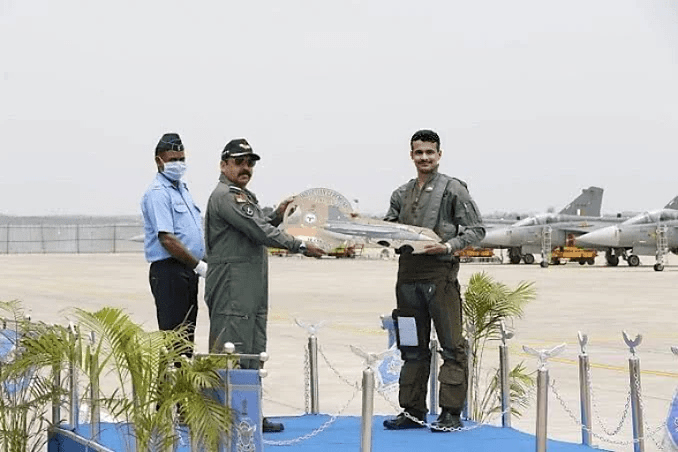
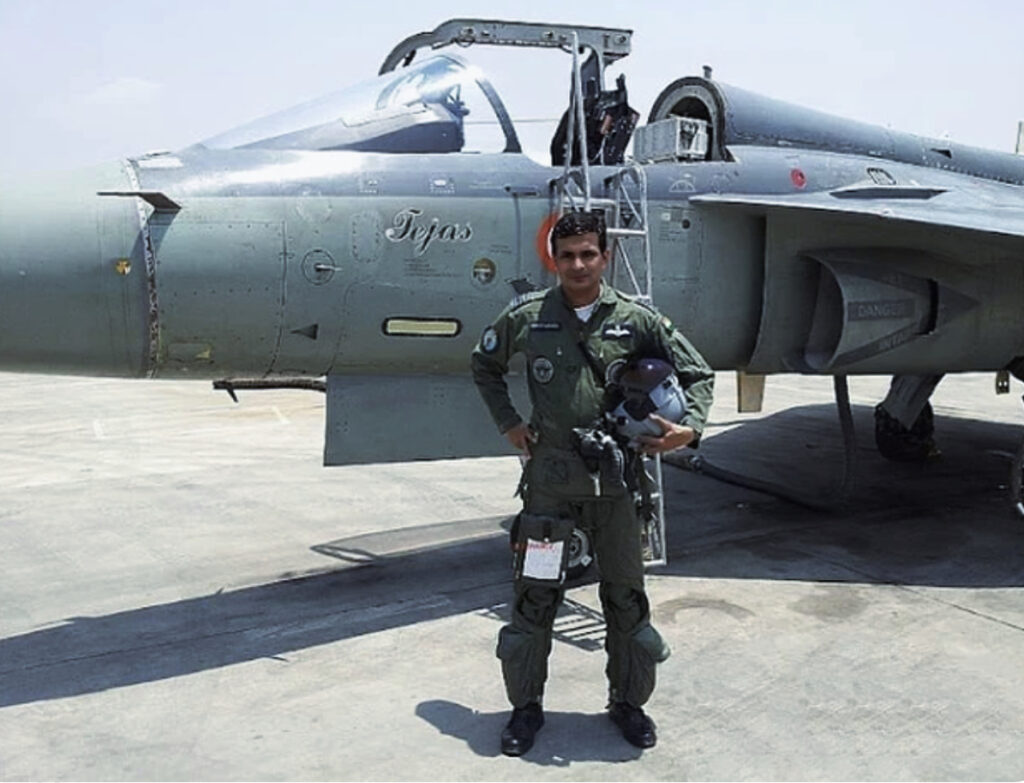
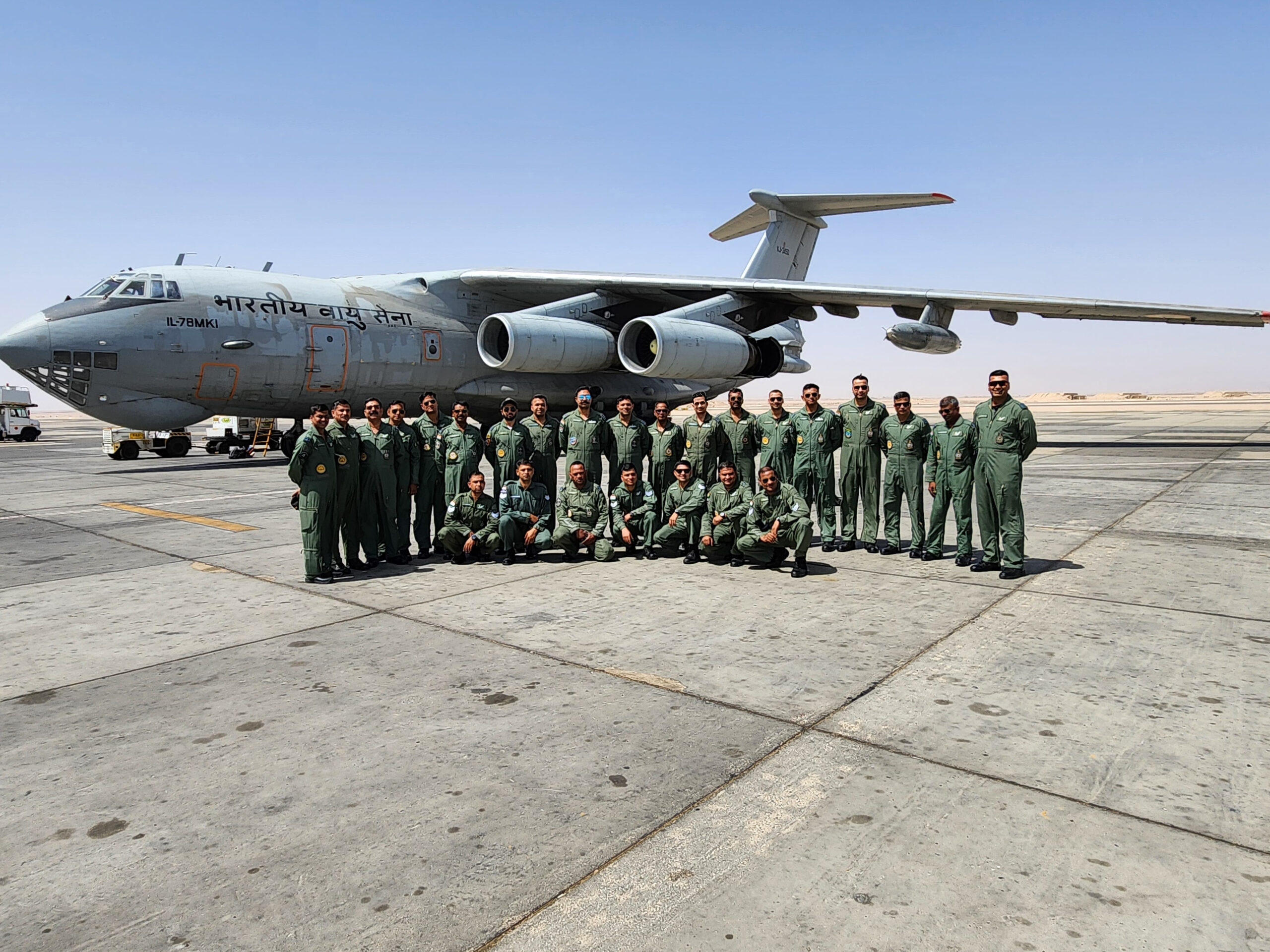

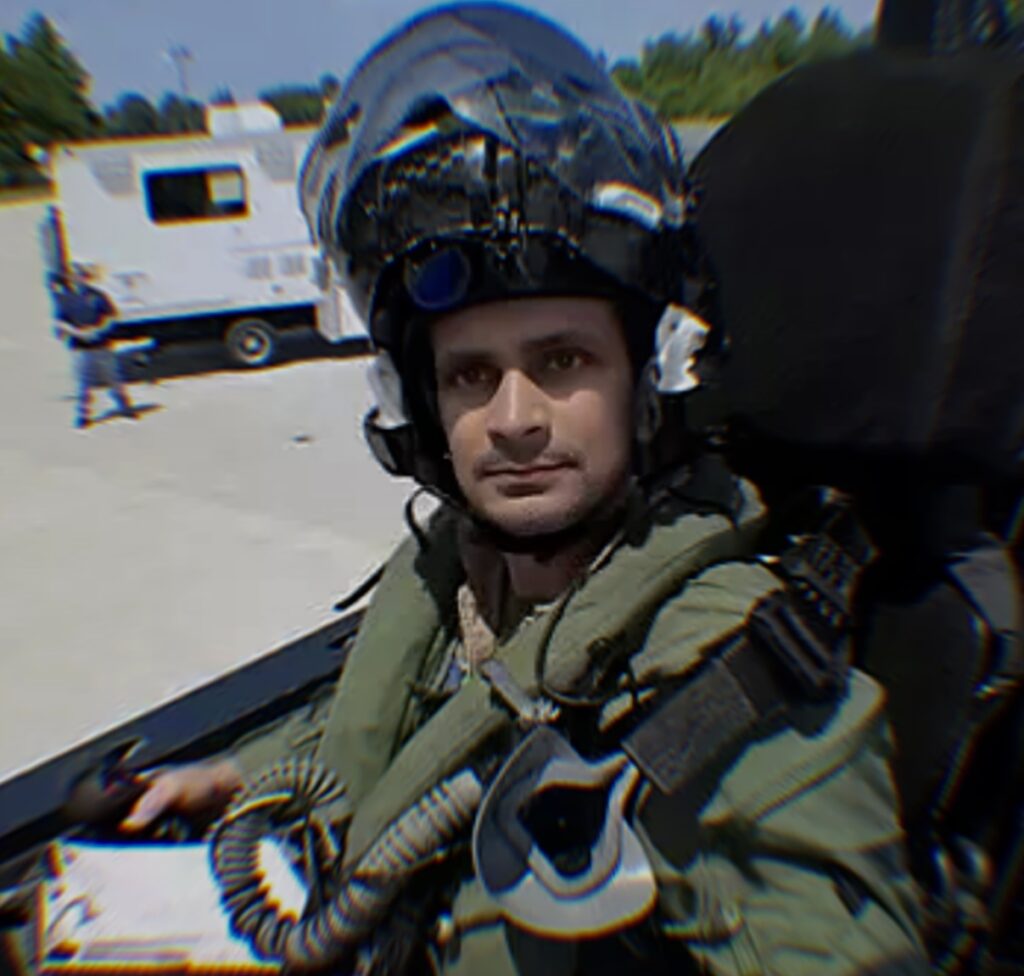
An automation system already has an AI-driven autopilot in place. With no human input, the aircraft can now monitor and manage its speed, altitude, and other variables with almost perfect accuracy. But only one pilot can fly, land, and use the flight controls.
Artificial intelligence isn’t ready to replace pilots, but it will simplify flight search, deliver more competitive airfares, and help airlines fly sustainably.
The successful test run shows that AI fighter jets can operate with increased autonomy and minimal human intervention, allowing for the execution of complex missions like jamming enemy air defense networks, surveillance, reconnaissance, and targeted strikes with greater precision and efficiency.
AI-piloted fighter jets are unable to handle complex aviation-specific challenges resulting from traffic control, cybersecurity, real-time factors, and the certifications of critical systems. In the absence of human pilots, results from such complications are bound to be fatal.
Maximum takeoff weight of 13,300 kg. It can attend the maximum speed of Mach 1.8. It has a general range of 850 km and a combat range of 500 km.

Single engined, light weight, highly agile, multi-role supersonic fighter. It has quadruplex digital fly-by-wire Flight Control System (FCS) with associated advanced flight control laws. The aircraft with delta wing is designed for ‘air combat’ and ‘offensive air support’ with ‘reconnaissance’ and ‘anti-ship’ as its secondary roles. Extensive use of advanced composites in the airframe gives a high strength to weight ratio, long fatigue life and low radar signatures.
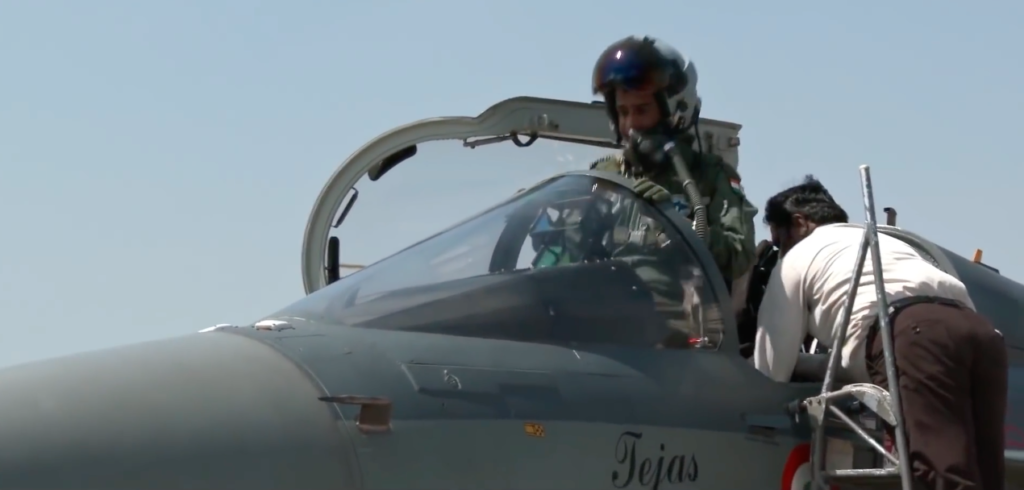
Length 13.2 m
Span 08.2 m
Height 4.4 m
Max Take of Weight 13.5 t
Payload 05.3 t
Speed 1.6 M
Radius of Action 300 km
Takeoff distance 1700 m
Landing distance 1300 m
Service Ceiling 16 km
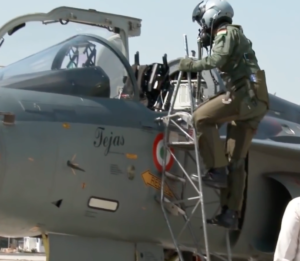
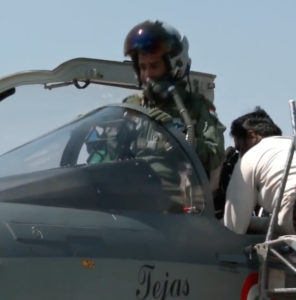
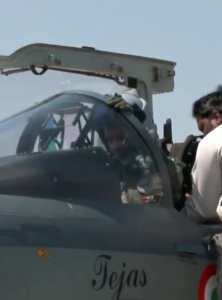
The coming era of Artificial Intelligence will not be the era of war, but be the era of deep compassion, non-violence, and love.
Artificial intelligence is not a substitute for human intelligence, it is a tool to amplify human creativity and ingenuity.


An AI Pilot is a system that takes full control of a task or process, making decisions and executing actions without human intervention. This is similar to the concept of an “auto-pilot” in aviation, where the aircraft’s systems can fly the plane autonomously.
Human intelligence uses their brain, memory and cognitive abilities while AI relies on the data provided by the human.


The development of full artificial intelligence could spell the end of the human race. It would take off on its own, and re-design itself at an ever-increasing rate. Humans, who are limited by slow biological evolution, couldn’t compete, and would be superseded.
Human intelligence uses their brain, memory and cognitive abilities while AI relies on the data provided by the human.


AI has not developed to understand and feel emotion, and to judge based on so called human feelings. Human pilots have to make a decision based on the souls on board which are ‘Humans’. AI will not base this emotional connection when decision making because it is programmed to understand “1 0 1 0 1”. Another factor to consider is situational awareness of other aircrafts, specially general aviation traffic, weather consideration and the list goes on…
Unmanned aerial vehicles (UAVs) are used for reconnaissance, surveillance and long-distance strikes. They were previously controlled manually but are now gaining more autonomy and relying more heavily on AI.
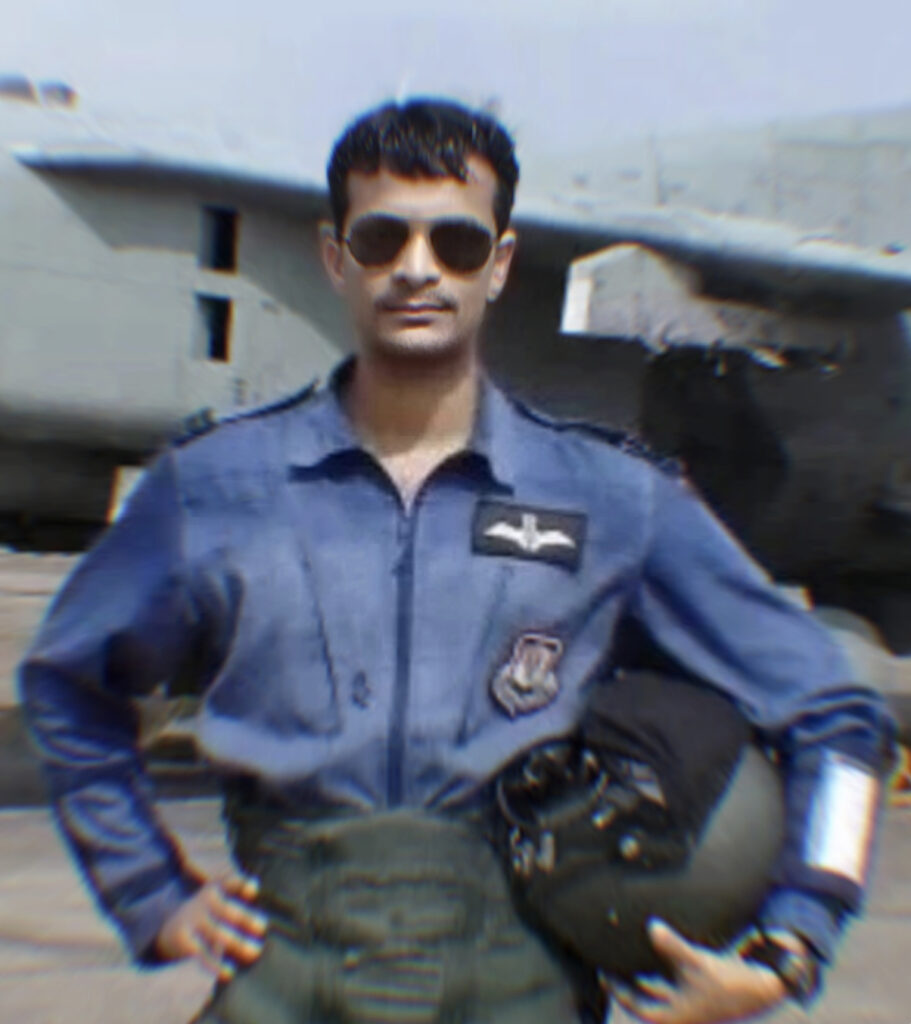

Dare To Dream, Then, Decide To Go…
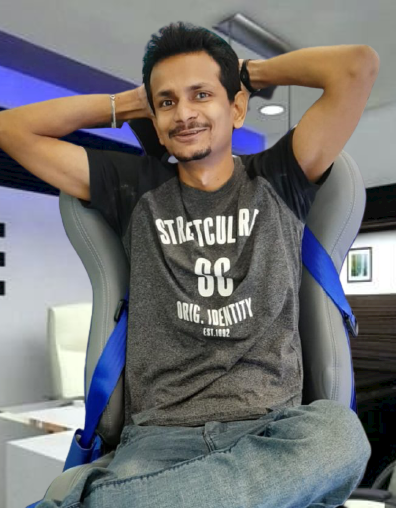
How Artificial Intelligence is transforming the Aerospace Industry?
The aerospace industry spans various levels of development, manufacturing, maintenance, and support of aircraft, spacecraft, and rotorcraft. It is a mission-critical industry, and its success depends on components that need to be highly reliable and accurate. Due to this, the industry needs to constantly improve its manufacturing processes, reduce labor costs and human errors, monitor the health of devices inside the aircraft, and effectively address safety issues.
Aerospace has always struggled to keep up with the latest technology trends due to its long regulatory cycles. All the bottlenecks mentioned above can be addressed by implementing Artificial Intelligence. The caveat here is that the algorithms need to be highly intelligent and reliable.
Artificial intelligence and its computational capabilities for data interpretation can streamline and simplify analytics, system management, customer service, and various other processes and activities. Artificial intelligence has already demonstrated promise in several other industries, such as banking, advertisement, retail, and health. Artificial intelligence (AI) in the aerospace industry can help companies streamline manufacturing while also addressing safety concerns. Further, AI systems can analyze inputs from various assets and process vast amounts of data faster than manually.
In this way, aerospace companies can carry out effective and faster inspections of various properties. The use of AI in aerospace can also help create a range of applications that can save/monitor fuel, boost operational performance, and assist in controlling air traffic. It has become crucial for business leaders to explore and leverage the benefits of Artificial Intelligence. Raytheon, General Dynamics, and Northrop Grumman have also announced AI-based development projects and product releases in recent years. Similarly, companies such as Lockheed Martin, Airbus, and Boeing have invested in AI startups through their venture arms.

Applications of Artificial Intelligence Systems in the Aerospace Industry
1. Smart Maintenance
Maintenance is essential to ensure the efficient functioning of the aircraft. Since servicing is typically conducted on a scheduled basis, the process can be time-consuming and incommodious. Unexpected glitches or malfunctions can result in a significant loss of resources and time. Since 45 percent of industry professionals see fixing unforeseen maintenance problems as a critical way to drive performance, it is no surprise that aviation businesses are increasingly looking into predictive maintenance facilitated by AI. Cloud-based applications have been used by Airbus for data processing, retrieval, and analysis to increase aircraft maintenance efficiency.
Predictive analytics sifts through data from sensors and reports, interpreting and sorting it. As a result, algorithms can detect and track possible faults in real-time and forecast the most appropriate repair times, resulting in more intelligent maintenance schedules.
2. Better fuel efficiency
Aerospace companies place a high emphasis on fuel quality, and even a tiny decrease in aircraft fuel consumption can have a massive impact on a company’s bottom line and emissions. The standard commercial flight consumes approximately 4 liters per second, 240 liters per minute, and 14,400 liters per hour. We can cut fuel consumption by 5 to 7 percent with the aid of AI systems.
AI-powered systems assist in the reduction of fuel consumption. For instance, Safety Line, a French firm, has created a machine learning tool that can optimize climb profiles for pilots before each flight. Since the climbing process uses the most fuel, optimizing this stage results in significant fuel savings.
3. Better Customer Experience
Customer satisfaction and quality of service are especially critical for commercial aviation. AI is one of the ways that airlines can improve their customer engagement and deliver exemplary customer support. Chatbots are an example: AI-based automated platforms that can respond to consumer inquiries in real-time and human-like ways. By automating customer service, online chatbots can save customers time and effort. Some of the ways in which this can be achieved are:
- Accurate and Personalized Suggestion on Customer’s purchase decisions
- AI-assisted Chatbots offer efficient and friendly support.
- 24×7 Automated Assistance
- Streamline customer interactions
According to a SITA poll, 14 percent of airlines and 9% of airports currently use chatbots, with 68 percent of airlines planning to deploy AI-driven chatbots shortly.
4. Training
Artificial intelligence can be used to improve pilot training facilities by providing a suitable simulation environment to pilots. This is achieved using AI-enabled simulators in combination with virtual reality systems. These simulators may also capture and analyze practice data to create personalized training data using biometrics to monitor and predict individual performance.
I have always been convinced that the only way to get artificial intelligence to work is to do the computation in a way similar to the human brain. That is the goal I have been pursuing. We are making progress, though we still have lots to learn about how the brain actually works.

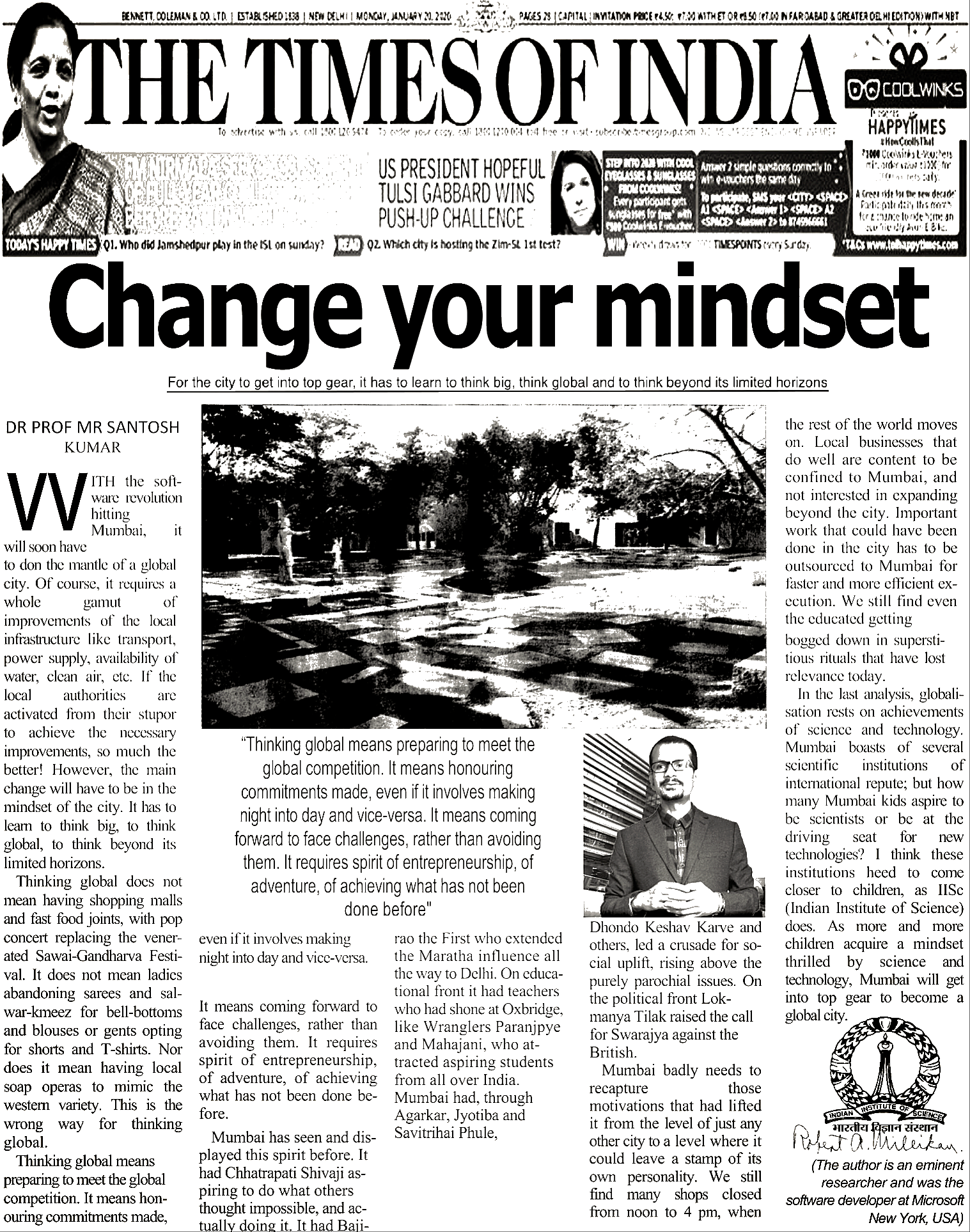
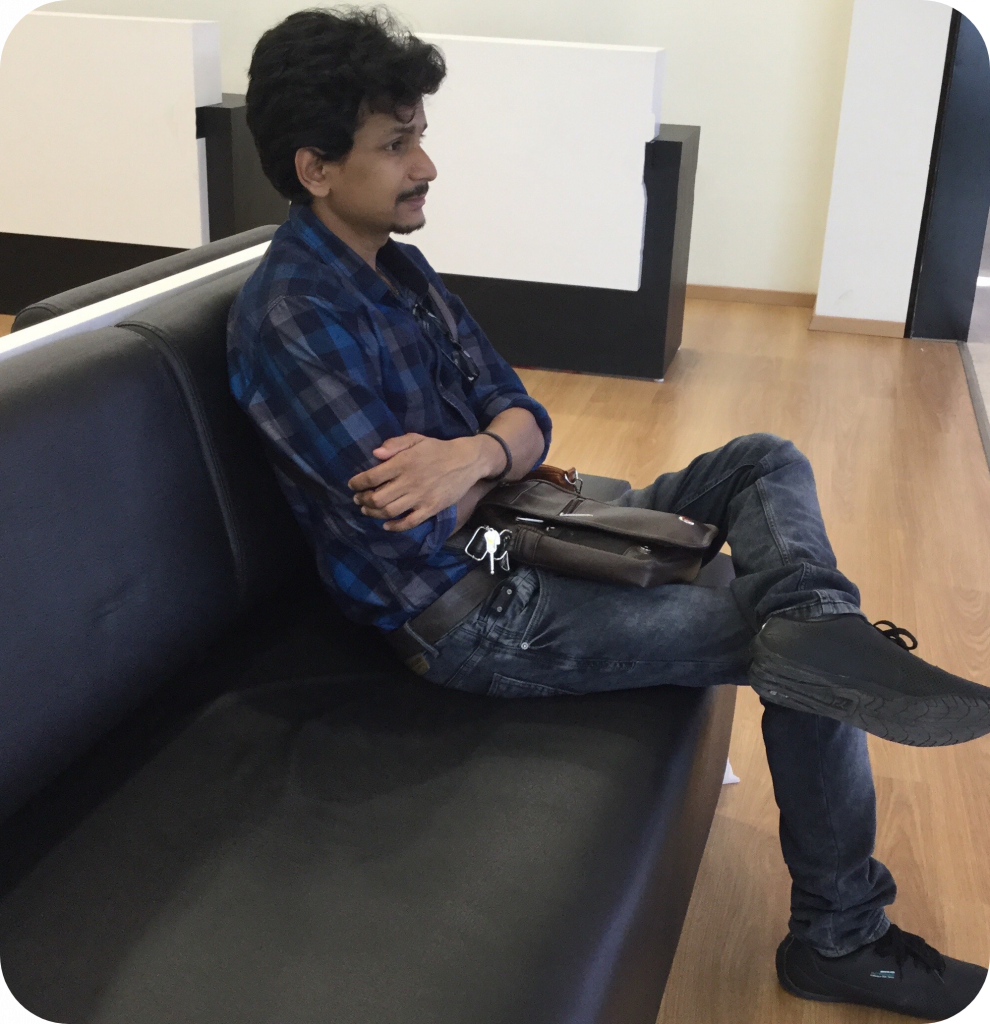
Mr Santosh Kumar, hailing from Bihar and born on October 5th 1994, originates from Yadav in Yadav Kshetra. His father Shashi Bhushan Prasad, serves as a cashier within the Government of Bihar.
Following his completion of engineering studies, he commenced his professional journey as a software developer at Microsoft, located in New York, USA.
Afterward, he transitioned to Hindustan Aeronautics Limited, assuming the role of a senior scientist. Additionally, he became affiliated with Robotics (Robosapian Technologies), contributing to the creation of robots leveraging image processing and voice recognition technologies. For his outstanding contributions in robotics and application/software development, he was bestowed with a prestigious gold medal.
Early life

Mr. Santosh Kumar, was born into a family with ancestral roots in Yadav, Yadav Kshetra. His father, Shashi Bhushan Prasad, serves as a clerk for the Bihar government, while his mother Smt. Sita Devi assumes the role of a homemaker.
Expanded description
Santosh received his education at St. Karen’s High School (Patna, Bihar). He later pursued his bachelor’s degree in Computer Science and Engineering at Rajiv Gandhi College of Engineering and Technology. Santosh expressed his enduring desire to create and innovate, stating that Computer Engineering provided him with the ideal avenue to explore what ultimately evolved into his passion.
Honors, awards and distinctions
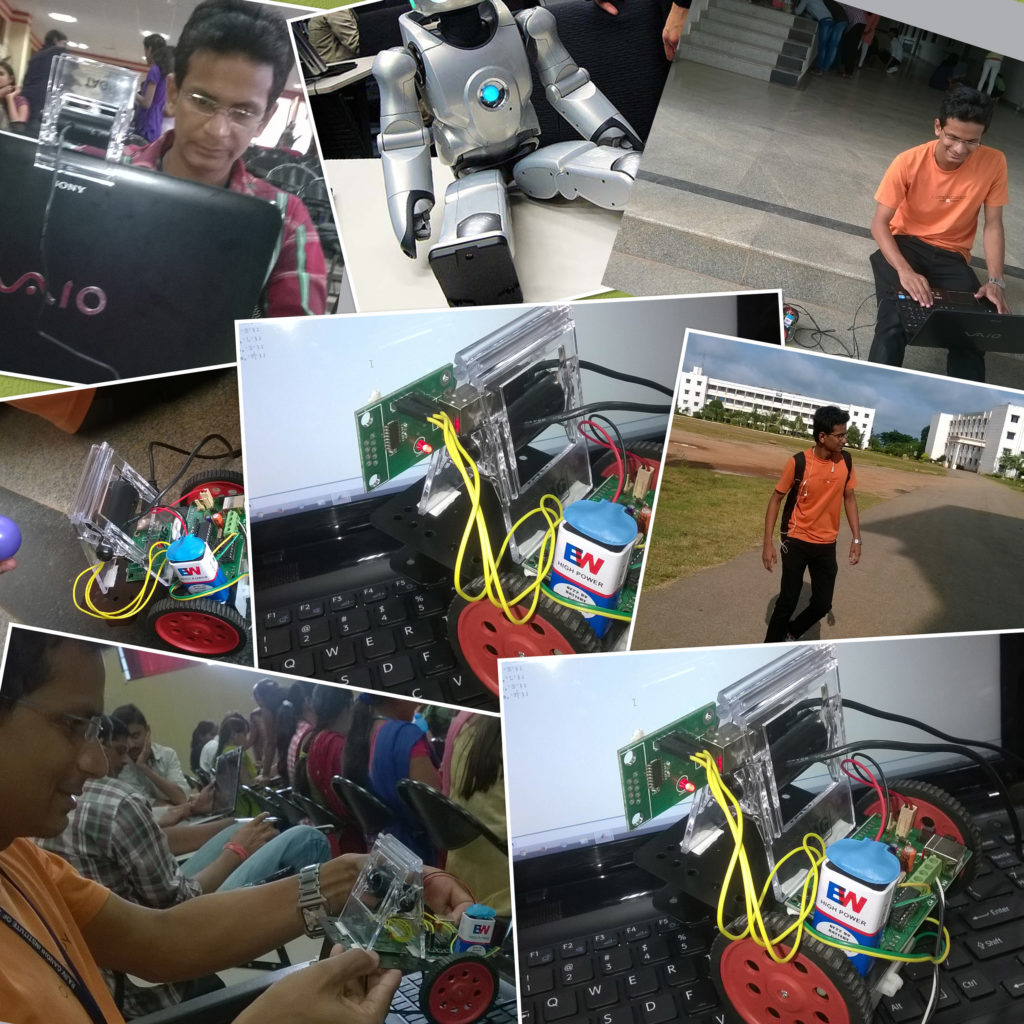
As a recipient of numerous accolades, Mr. Santosh Kumar has been honored for his exceptional achievements in various fields. Notably, he has been awarded gold medals for his contributions in Digital Image Processing, Voice Recognition, and RoboSapien technologies, along with recognition at the national level in the Indian Computing Olympiad. Additionally, he has demonstrated his expertise by developing a diverse array of applications and software. His remarkable accomplishments were further acknowledged when he received the prestigious “Navratna Officer” award from the Ministry of Defence, presented by the esteemed Raksha Mantri Shri Rajnath Singh during the Aero India Show 2021.
Several acclaimed games have been created by Mr. Santosh Kumar, including face/image recognition games that offer players the unique experience of interaction without the need for physical contact with PCs or laptops.
These games are designed to be played by presenting colors to the device using the camera. They operate by detecting various colors through the camera, enabling interaction and gameplay based on this color detection mechanism.
Qualification
- Bachelor of Engineering from Rajiv Gandhi College of Engineering. (Computer Science & Engineering)
- Master of Technology from Indian Institute of Science (AI & ML)
- Doctor of Philosophy (PhD) from Indian Institute of Science. (AI & ML)
It is one of the best programmes I’ve ever attended. I would call it an action-packed thriller technology course… It is like parallel processing computers, where we get so much knowledge and so many ideas from fellow students.

His Formulations on Artificial Intelligence
Read more:
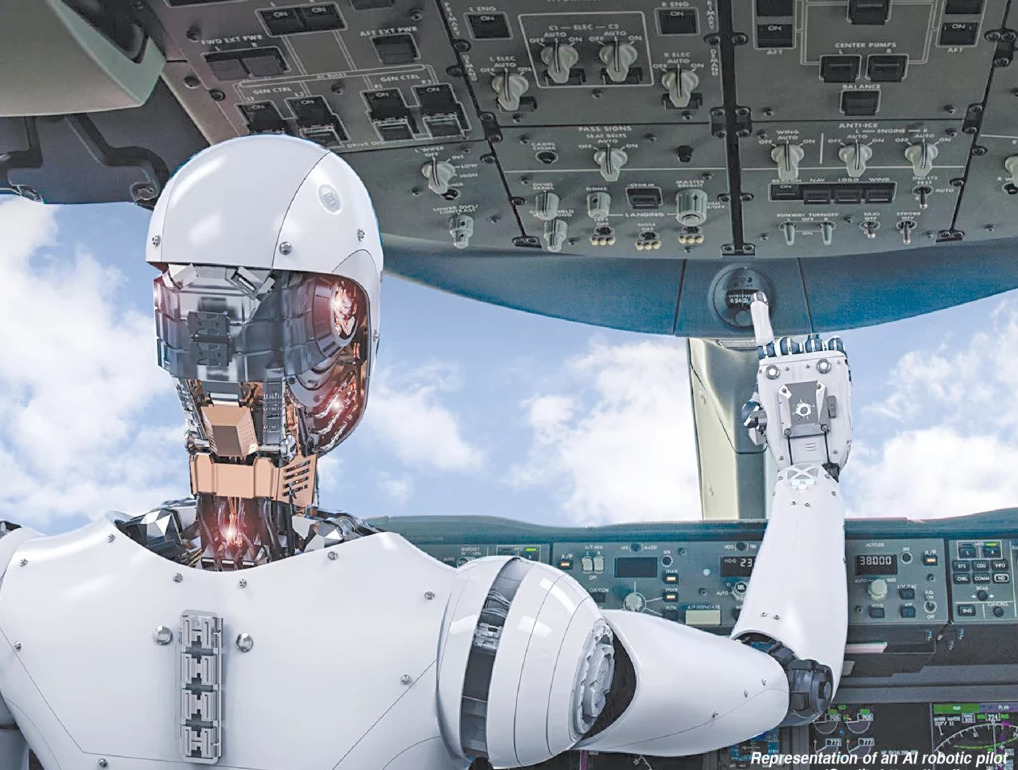
Artificial Intelligence : The main research topics in AI include: problem solving, reasoning, planning, natural language understanding, computer vision, automatic programming, machine learning.
You and AI, supported by DeepMind : You and AI, supported by DeepMind by Christopher Michael Bishop FRS FRSE FREng.Microsoft Technical Fellow & Director of The Microsoft Research Lab,Cambridge Lab, London, UK.(Kate Crawford, Distinguished Research Professor at New York University, a Principal Researcher at Microsoft Research New York, and the co-founder and co-director the AI. Now Institute, discusses the biases built into machine learning, and what that means for the social implications of AI.)
Artificial Intelligence (Debate about his discoveries on AI) :
1. Artificial Intelligence as a Positive and Negative Factor in Global Risk.
2. Using Machine Learning Methods for Evaluating the Quality of Technical Documents.
3. General Attention Mechanism for Artificial Intelligence Systems.
4. Artificial Neural Networks with Java.
AI & Robotics Highlights : The Oxford Event
Cut through the hype and uncover the most effective ways to manage the impact of AI and automated technology on your customers and employees. Find out what can beapplied now and how to plan for upcoming AI developments.
Meet with IBM Watson : IBM Watson is a cognitive technology platform which represents a new era in computing: by understanding natural language and generating hypotheses based on evidence, Watson processes information more like a human than a computer, through senses, learning, and experience. Watson continuously learns over time, gaining in value and knowledge from previous interactions. In this historic event, IBM’s David Cole discusses the technology behind Watson, and the history of how it came to be, from the grand challenge of competing on Jeopardy! to supporting clinicians.
Ethics and Morality of Robotics : Robot ethics, sometimes known as “roboethics”, concerns ethical problems that occur with robots, such as whether robots pose a threat to humans in the long or short run, whether some uses of robots are problematic (such as in healthcare or as ‘killer robots’ in war), and how robots should be designed such that they act ‘ethically’ (this last concern is also called machine ethics). Alternatively, roboethics refers specifically to the ethics of human behavior towards robots, as robots become increasingly advanced. Robot ethics is a sub-field of ethics of technology, specifically information technology, and it has close links to legal as well as socio-economic concerns. Researchers from diverse areas are beginning to tackle ethical questions about creating robotic technology and implementing it in societies, in a way that will still ensure the safety of the human race.
Elon Musk’s Vision for the Future : The iconic entrepreneur behind SpaceX, Tesla Motors and Paypal shares his predictions for artificial intelligence, renewable energy and space exploration, in conversation with DFJ General Partner Steve Jurvetson.
